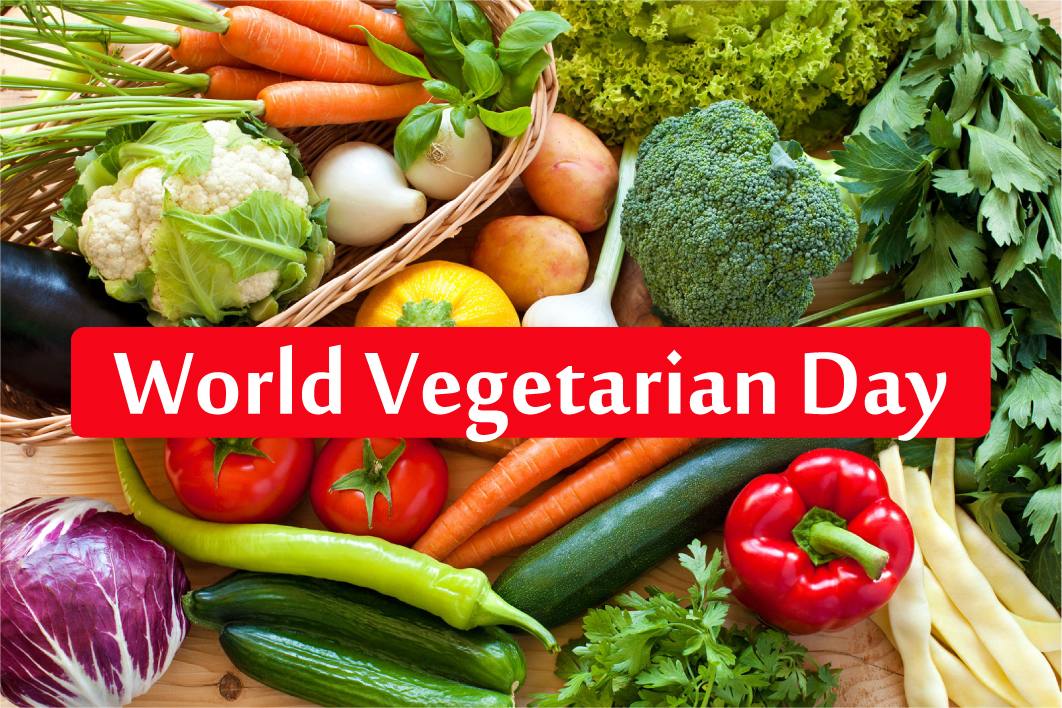People become vegetarians for many reasons, including health, religious convictions, concerns about animal welfare or the use of antibiotics and hormones in livestock, or a desire to eat in a way that avoids excessive use of environmental resources. Some people follow a largely vegetarian diet because they can’t afford to eat meat. Becoming a vegetarian has become more appealing and accessible, thanks to the year-round availability of fresh produce, more vegetarian dining options, and the growing culinary influence of cultures with largely plant-based diets.
Traditionally, research into vegetarianism focused mainly on potential nutritional deficiencies, but in recent years, the pendulum has swung the other way, and studies are confirming the health benefits of meat-free eating. Nowadays, plant-based eating is recognized as not only nutritionally sufficient but also as a way to reduce the risk for many chronic illnesses. According to the American Dietetic Association, “appropriately planned vegetarian diets, including total vegetarian or vegan diets, are healthful, nutritionally adequate, and may provide health benefits in the prevention and treatment of certain diseases.”’
But it is always two different sides of coin, people have various doubts due to variety of myths associated with the Vegetarian Food. Here are some answers to these myths on the occasion of 1st October being observed as World Vegetarian Day….
You can’t get enough protein from vegetarian food?
You can’t get enough protein from vegetarian food: This is the biggest myth associated with the vegetarian diet. In order to get all the essential amino acids, focus on eating a variety of protein rich diet which includes lentils, sprouts, oats, soya, soya milk, almond and walnuts, beans, seeds, milk and cottage cheese (paneer).
Vegetarian diet is tasteless and lacks variety?
Vegetarian diet is tasteless and lacks variety: Vegetarians enjoy food as much as anyone else. You just need to experiment with different food items and preparations in order to make the food tasty and nutritious when cooked imaginatively. A well planned vegetarian meal can add taste as well as variety to savour your taste buds.
Are there any side effects of being a vegetarian?
There are generally no ill effects of vegetarian diet. You might feel “less full” if you were a strict non- vegetarian. You may increase the quantity of dals, veggies and salads in your diet in order to overcome the feeling.
Is it feasible to be a vegetarian all your life?
Yes, you can follow a vegetarian diet for lifetime as long as it is nutritionally well planned. You should ensure that you get all the nutrients in the right amount.
Are Vegetarians Healthier Than Non-Vegetarians?
Generally, vegetarian diets are lower in saturated fats, cholesterol and animal protein, and higher in fiber than non-vegetarian diets. As a result, vegetarians tend to have substantially reduced risks for obesity, heart disease, high blood pressure and some forms of cancer. However, differences in lifestyle also play a huge role in vegetarian health. So, stick to a balanced meal and avoid junk food to stay healthy.
Is it true that vegetarian diet helps in maintaining a healthy weight?
It is easier to maintain a healthy weight if you eat vegetarian meal because they tend to be naturally low in fat and calories. Plant based food are also high in fiber and complex carbohydrates which help boost metabolism. In the process, you burn more calories, do not accumulate fat and stay fit and slim.
I am a meat lover but I want to switch to being a vegetarian, please suggest me how can I develop this habit?
Be firm that you want to be a vegetarian. Learn about the benefits of being a vegetarian. Initially you might feel starved in comparison to the non- vegetarian meals. Eat a balanced vegetarian meal which has optimal amounts of the essential vitamins and minerals.
Does it cost more or less to be a vegetarian?
Vegetarian meals are more budget friendly as compared to meat. You need to spend at least 30-50% more when you order non-vegetarian meal in general.
Is it true that vegetarian diet lacks vitamin B12?
It is true that you can almost get all the essential vitamins and nutrients being a vegan except for vitamin B12 as there is no source of vitamin B12 in plant based food. Though if you are Lacto-ovo vegetarian or Lacto vegetarian, you can get B12 from these sources such as Eggs, Milk, yogurt, low-fat cheese, cottage cheese, and other dairy products, Food sources that have B12 added to them (fortified), such as cereal and soy products.
What are the best sources of food for vegetarians in order to get a balanced diet?
People having different type of vegetarian diets can enrich their meal with some of these sources:
- Vitamin B12: Dairy products, eggs. Fortified cereals, breads, soy and rice drinks
- Vitamin D: Sunlight, Milk and Milk based products
- Calcium: Dairy products, dark green leafy vegetables, broccoli, Almonds, Raagi cereal, Tofu……
- Protein: Pulses, dairy products (milk and cheese), eggs, tofu and other soy products, dried beans, nuts, Mashroom
- Iron: Eggs, dried beans, dried fruits, whole grains, leafy green vegetables, Raggi Cereal, Pomegranate, beetroot, carrot, jiggery, Rice flakes
Vegetarian Diets Are Not Appropriate for Pregnant Women, Children or Athletes?
A well-planned vegetarian or vegan diet can meet the nutrient needs of people from all stages of life, including pregnant and lactating women, children and athletes. It’s just about making sure you get the nutrients you need. Pregnant women, for example, need more iron; expectant mothers should eat plenty of iron-rich foods and include a source of vitamin C to help increase absorption (iron is not absorbed well from plant-based sources). After meals, have a small piece of guava fruit or amla for absorption of iron.
For infants, children and adolescents, a vegetarian diet can promote normal growth. As with adults, vegan children may have slightly higher protein needs because of how the body digests plant protein. However, these needs typically can be fulfilled if the diet provides enough calories and diversity of foods.
And while most competitive athletes require increased energy, protein and nutrient needs for optimal performance, there’s no reason they can’t get everything they need nutritionally from plant sources. All it takes is a little diligence in menu planning.
To Build Strong Bones, You Must Include Dairy in Your Diet?
Dairy is not the only food that can help build and protect strong bones. A number of nutrients are needed for bone health, including calcium, vitamin D and protein. Some vegetables such as spinach and health nuts (almonds and valnuts, nuts and seeds) are good sources of calcium, but they also are high in oxalates, which decrease calcium absorption, so include a wide variety of other leafy green vegetables more often.
If you are forgoing dairy, ensure that you get the recommended dietary allowance of calcium by spreading your green vegetable intake throughout the day and choosing calcium-fortified foods such as non-dairy milk, ready-to-eat cereals, orange juice and tofu. In addition to following a nutrient-rich diet, weight-bearing exercise such as yoga, running, brisk walking and strength training is an essential component for increasing bone strength.

Article is prepared by V. Krishna Deepika, Clinical Dietician, Apollo Cradle & Children’s Hospital, Kondapur, Hyderabad




Comment here